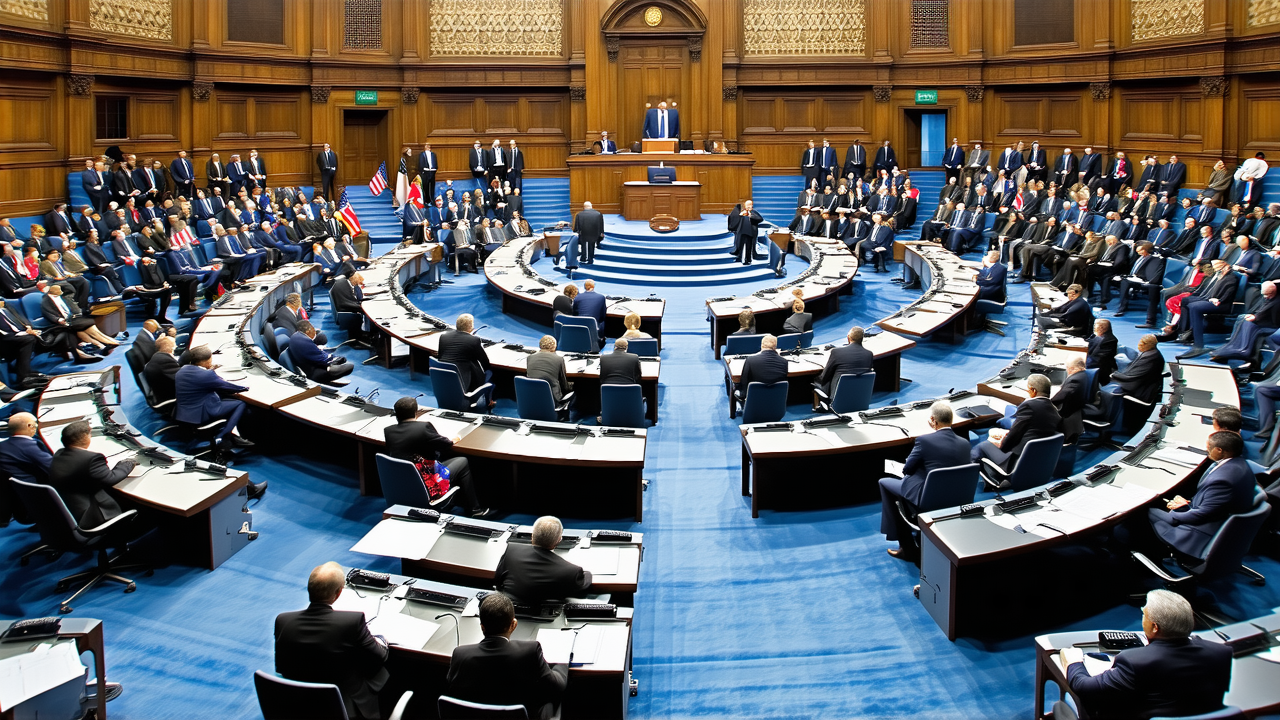New Zealand Repeals Offshore Oil Ban Amid Political Divisions and Industry Debate
New Zealand Repeals Offshore Oil Ban Amid Political Divisions and Industry Debate
After years of political debate and public controversy, New Zealand has moved to repeal the 2018 offshore oil and gas exploration ban. The legislation, passed through Parliament on Thursday, has sparked a heated discussion among lawmakers, industry stakeholders, and environmental groups. While the ruling coalition sees the repeal as a necessary step to boost energy security and attract investment, the opposition has raised concerns about its long-term environmental and economic impacts.
Coalition Pushes for Consensus, Opposition Resists
The repeal of the 2018 ban marks a significant policy shift. Coalition parties, including National and Act, argue that the move is essential to restore investor confidence and ensure a stable energy supply. However, the opposition has warned that the decision could undermine New Zealand’s climate goals and risk trade agreements with key partners such as the European Union and the United Kingdom.
Labour, the Greens, and Te Pāti Māori have pledged to reinstate the ban if they return to power, signaling a potential future clash over energy policy. This stance has raised concerns among industry leaders, who believe the uncertainty could deter investment in the sector.
Shane Jones at the Forefront of the Repeal
Shane Jones, a key figure in the repeal effort, has been vocal in his support for the policy change. In a statement following the bill’s passage, Jones described the previous ban as “ill-fated” and argued that it had exacerbated domestic gas shortages by deterring investment in new exploration projects.
“New Zealanders are bearing the brunt of this constrained gas supply, and energy security concerns are impacting investor sentiment,” Jones said. He emphasized that the repeal is part of a broader effort to stabilize the energy sector and protect electricity affordability.
Energy Minister Simon Watts Defends the Policy
Simon Watts, the National Party’s Minister for Energy and Climate Change, defended the repeal, stating that the immediate signal to investors is critical. He argued that the policy encourages exploration and maximizes production from existing fields, which can provide benefits more quickly than new discoveries.
“New Zealand is committed to a clean-energy transition and meeting our emissions targets,” Watts said. “Natural gas remains critical to our energy security. Without gas, we would need to rely more on coal, which results in higher carbon emissions, or face energy insecurity and higher prices.”
Opposition Challenges the Repeal
Megan Woods, a Labour MP, has criticized the government’s move, pointing to official analysis showing that reversing the ban would add 14.2 million tonnes of emissions. She also highlighted a previously redacted section of the regulatory impact statement, which warned that the repeal could affect trade relations with the EU and the UK.
“What we had was those offshore oil and gas operators looking for every last bit they could eke out of the existing fields, and it is not there,” Woods said. “Billions of dollars have been spent looking for that particular El Dorado, and this Government is going to give $200 million to offshore companies to go and have a look again where they’ve already decided there are not commercial finds available.”
Environmental Concerns and Industry Skepticism
Environmental groups, including the Green Party, have expressed skepticism about the potential for the oil industry to return to New Zealand. Steve Abel, a Green Party spokesperson, pointed out that several major oil companies had already left the country before the 2018 ban was enacted, citing lack of commercial viability and public opposition as key factors.
“The ban was the final nail in the coffin of an industry that was already declaring its own demise in this country,” Abel said. He noted that many companies had left due to overwhelming public opposition and a lack of commercially viable resources.
Industry Challenges and Uncertainty
Echelon Resources, a New Zealand-based energy company, has warned that new drilling projects will likely be more difficult and expensive, as the best wells are typically drilled first. Managing director Andrew Jeffries said that political instability could make New Zealand less attractive to investors compared to countries with more consensus-driven policies.
Act Party MP Simon Court has called on Labour to avoid reimposing the ban if it returns to power, arguing that the previous government’s policies had caused economic harm. “Even the Honourable Shane Jones said at the time that ending oil and gas exploration was the only scenario,” Court said. “I’m pleased that minister has come to his senses, but profoundly disappointed that the Labour Party still has not.”
Conclusion: A Divided Nation on Energy Policy
As the debate over New Zealand’s energy future continues, the repeal of the 2018 offshore oil ban has set the stage for a long and contentious political battle. While the ruling coalition sees the move as a necessary step toward energy security, the opposition and environmental groups remain deeply skeptical. The outcome of this debate will have significant implications for the country’s economy, environment, and international relations.
